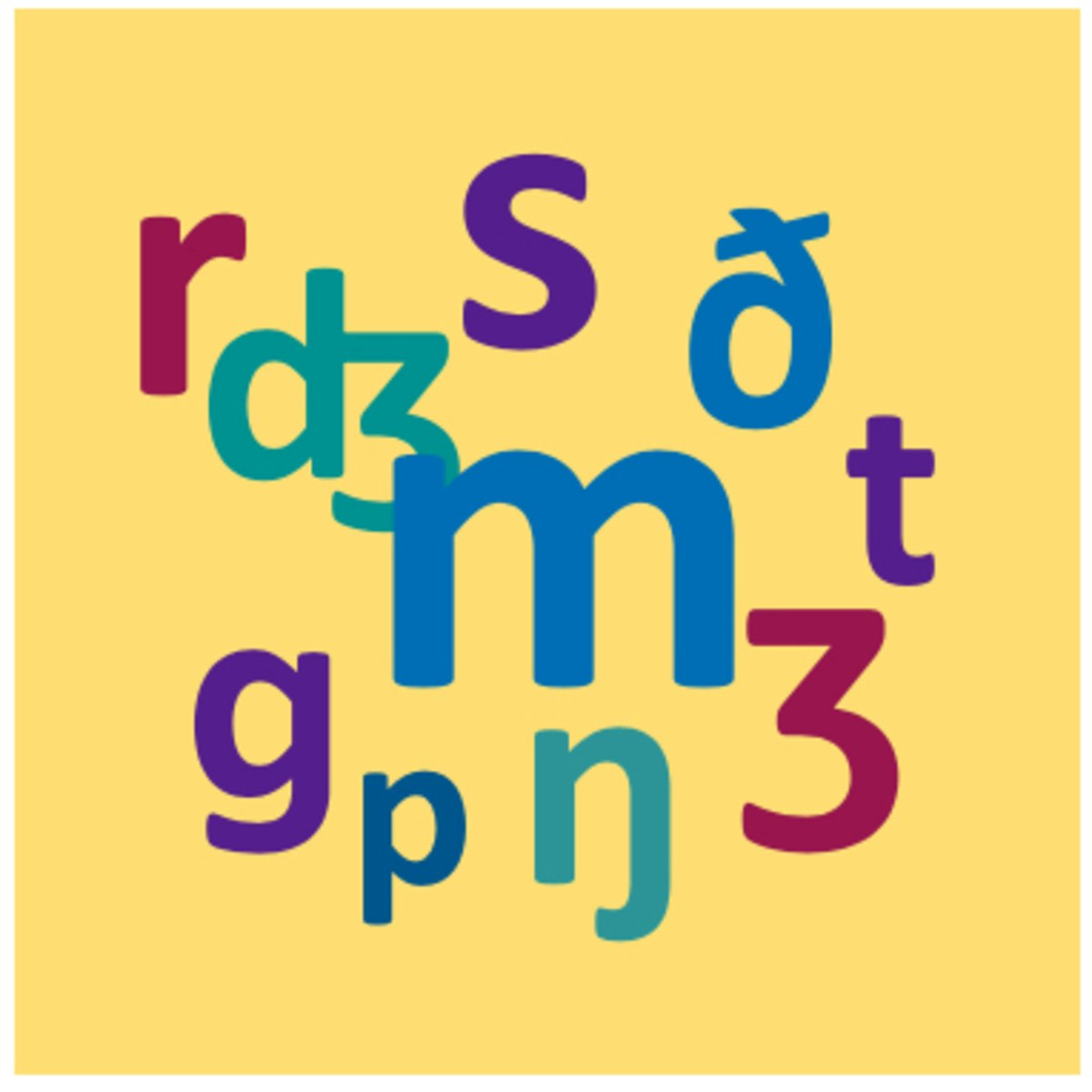English Professor
So You Want to Be an English Professor?
An English Professor is a scholar and educator specializing in the study and teaching of English language, literature, and sometimes related fields like composition, rhetoric, or cultural studies. They work primarily in colleges and universities, guiding students through the complexities of texts, language, and critical thought. Their role extends far beyond the classroom, encompassing research, publication, and service to their institution and the broader academic community.
Embarking on this path means diving deep into the world of words, exploring everything from the structure of language to the vast landscapes of literary history and theory. It involves not only analyzing texts but also contributing original scholarship to the field. For many, the allure lies in the intellectual challenge, the opportunity to mentor students, and the chance to spend a career immersed in the power and beauty of literature and language.
Career Overview: English Professor
Understanding the role of an English Professor requires looking beyond the common image of someone simply lecturing about novels or poetry. It's a multifaceted career demanding expertise in teaching, research, and academic service.
What Does an English Professor Do?
At its core, the role involves instructing postsecondary students. Professors design courses, prepare syllabi, deliver lectures, facilitate discussions, and evaluate student work like essays and research papers. They aim to cultivate critical thinking, analytical skills, and strong writing abilities in their students.
Beyond teaching, research is a fundamental responsibility, especially in university settings. This involves conducting original scholarly work within their area of specialization, presenting findings at academic conferences, and publishing articles in peer-reviewed journals or authoring scholarly books. This research contributes to the broader body of knowledge in literary studies, linguistics, or composition theory.
Finally, English Professors engage in service activities. This includes advising students on academic paths and career options, serving on departmental and university committees (e.g., curriculum development, hiring, admissions), and sometimes taking on administrative roles like department chair. Mentorship is often a key, albeit sometimes informal, part of the role, guiding students through their academic journey.
These courses offer a glimpse into the diverse subject matter English professors engage with, from poetry analysis to world literature.
Academia vs. K-12: Understanding the Differences
While both K-12 English teachers and English Professors focus on language and literature, their roles, qualifications, and work environments differ significantly. K-12 teachers primarily focus on pedagogical delivery, curriculum implementation often set by districts or states, and classroom management for younger students. Their goal is foundational literacy and analytical skill development.
University-level professors, conversely, engage with more specialized subject matter, often tied to their own research interests. They teach older students, frequently focusing on advanced critical analysis, literary theory, and scholarly research methods. A key distinction is the requirement for professors, particularly at four-year universities, to conduct and publish original research alongside their teaching duties.
The educational requirements also diverge sharply. K-12 teachers typically need a bachelor's degree and state teaching certification. English Professors, especially those seeking tenure-track positions at universities, almost always require a Doctor of Philosophy (Ph.D.) in English or a closely related field.
Fields Within the Field: Common Specializations
The field of English studies is broad, allowing professors to specialize in numerous areas. Literary studies is perhaps the most traditional, focusing on specific periods (e.g., Medieval, Victorian, Modernist), genres (poetry, drama, novel), or national literatures (British, American, Postcolonial).
Rhetoric and Composition is another major area, concentrating on the theory and practice of writing, argumentation, and communication. Professors in this specialization often teach first-year writing courses and conduct research on pedagogy, discourse analysis, or digital rhetoric.
Other specializations include creative writing, where professors are typically published authors who teach craft and workshop courses; cultural studies, examining literature through lenses like race, class, gender, and media; literary theory, focusing on different frameworks for interpreting texts (e.g., feminism, post-structuralism, psychoanalysis); and linguistics or the history of the English language.
This course delves into the Chinese literary tradition, showcasing the global breadth of literary studies.
Essential Skills and Competencies
Succeeding as an English Professor requires a distinct set of skills honed through years of study and practice. These competencies extend beyond a love of reading to encompass rigorous analysis, effective communication, and pedagogical expertise.
Sharpening Your Analytical Mind
Central to the profession is the ability to perform deep critical analysis of texts. This involves more than just understanding the plot; it requires dissecting language, structure, themes, historical context, and theoretical underpinnings. Professors must interpret complex works, identify subtle nuances, and formulate insightful arguments supported by textual evidence.
This analytical rigor applies not only to literature but also to student writing, scholarly articles, and theoretical frameworks. It requires intellectual curiosity, attention to detail, and the capacity to engage with diverse perspectives and challenging ideas. Strong analytical skills form the bedrock of both teaching and research in the field.
Developing this skill involves extensive reading, critical engagement with secondary scholarship, and practice in formulating and defending interpretations. It's a continuous process of refining one's ability to think critically and articulate complex thoughts clearly.
These resources can help refine analytical and language skills, crucial for textual interpretation.
Mastering the Art of Teaching
Effective teaching, or pedagogy, is paramount. English Professors must translate complex literary concepts and analytical methods into engaging and understandable lessons for diverse student populations. This involves designing effective course structures, creating stimulating assignments, and leading productive classroom discussions.
Good pedagogical practice requires adapting teaching styles to different learning needs and classroom contexts, from large lecture halls to small seminars. It also involves providing constructive feedback on student writing and fostering an inclusive learning environment where all students feel encouraged to participate and develop their skills.
Developing pedagogical skills often involves formal training (like teaching practicums during graduate school), observing experienced instructors, seeking feedback, and reflecting on one's own teaching practices. Increasingly, proficiency in digital pedagogy and online teaching methods is also becoming essential.
These courses focus on the practical aspects of teaching language and literature effectively.
Scholarly Communication: Writing and Reviewing
Academic writing is a distinct skill required for research and publication. Professors must be able to articulate original arguments, synthesize complex information, engage with existing scholarship, and adhere to the conventions of academic prose and citation styles within their field. Clarity, precision, and persuasive argumentation are key.
The peer review process is integral to scholarly communication. Professors not only submit their own work for review but also serve as reviewers for academic journals and presses. This involves critically evaluating the research of others, providing constructive feedback, and helping to maintain scholarly standards within the discipline.
Mastering academic writing and peer review takes time and practice, often beginning in graduate school with seminar papers and dissertation work. It involves understanding the expectations of scholarly audiences and learning to navigate the processes of revision and critique.
Sharing Knowledge: Presentation and Public Speaking
Strong communication skills extend to public speaking. Professors regularly present their research at academic conferences, deliver lectures to students, and may participate in public-facing events like readings or panel discussions. Effectively conveying complex ideas to diverse audiences is crucial.
Conference presentations require summarizing research concisely, engaging with questions from peers, and networking within the academic community. Classroom lecturing demands clarity, organization, and the ability to hold students' attention while facilitating understanding.
Developing these skills involves practice, seeking feedback, and observing effective speakers. Many graduate programs offer opportunities for students to present their work and receive coaching on presentation techniques.
Sharpening pronunciation and vocabulary is beneficial for clear communication in teaching and presentations.
These books offer comprehensive guidance on pronunciation and vocabulary for enhanced communication.
The Educational Journey
Becoming an English Professor involves a significant, often lengthy, educational commitment. The path typically requires advanced degrees and specialized training beyond an undergraduate education.
Foundational Studies: The Bachelor's Degree
The journey usually begins with a Bachelor of Arts (BA) in English or a related field like Comparative Literature, Linguistics, or Creative Writing. This undergraduate degree provides a broad foundation in literary history, critical analysis, various genres, and writing skills. Students develop core competencies in reading closely, interpreting texts, and constructing arguments.
During the BA, students explore different areas of English studies, potentially identifying interests that could lead to future specialization. Strong academic performance, particularly in upper-level coursework, and establishing relationships with faculty mentors are crucial for those considering graduate school.
While an English BA is the most common starting point, individuals with degrees in other humanities or even social science fields may sometimes pursue graduate studies in English, though they might need to complete prerequisite coursework.
Graduate School: Master's and PhD Pathways
For most aspiring English Professors aiming for university positions, graduate study is essential. Some students pursue a Master of Arts (MA) in English first. An MA typically takes two years and offers more specialized study, deeper engagement with theory and research methods, and often includes a thesis project. It can serve as preparation for a Ph.D. or as a terminal degree for certain teaching roles, particularly at community colleges.
The Doctor of Philosophy (Ph.D.) is generally the required credential for tenure-track positions at four-year colleges and universities. Ph.D. programs are intensive research degrees, typically taking five to seven years (or longer) to complete. Programs involve advanced coursework in specialized areas, rigorous comprehensive examinations demonstrating broad knowledge, proficiency in one or more foreign languages, teaching experience (often as a teaching assistant), and the completion of a substantial original research project known as a dissertation.
Some Ph.D. programs admit students directly from a BA, while others require or prefer applicants to hold an MA. Admission to reputable Ph.D. programs is highly competitive, requiring strong undergraduate records, compelling writing samples, letters of recommendation, and standardized test scores (though some programs are moving away from GRE requirements).
Explore foundational concepts in English language and literature through these courses.
This course explores Latin literature, relevant for understanding classical influences on English.
The Doctoral Dissertation: A Capstone Achievement
The dissertation is the cornerstone of the Ph.D. program. It is an extensive, book-length work of original scholarship that makes a significant contribution to the candidate's chosen field of specialization. Candidates work closely with a faculty advisor and committee throughout the research and writing process.
Developing a dissertation involves identifying a viable research question, conducting in-depth research (archival, textual, theoretical), formulating a complex argument, and writing a substantial manuscript. The process typically takes several years, requiring intense focus, discipline, and intellectual creativity.
Once the dissertation is complete, the candidate must defend it in an oral examination before their committee. A successful defense marks the completion of the Ph.D. requirements and signifies the candidate's readiness to enter the scholarly community as an independent researcher.
After the Doctorate: Postdoctoral Opportunities
Given the competitive nature of the academic job market, some Ph.D. graduates pursue postdoctoral fellowships, often called "postdocs." These are temporary research positions, typically lasting one to three years, designed to allow recent graduates to deepen their research, gain additional publications, and sometimes acquire more teaching experience before seeking tenure-track positions.
Postdocs can provide valuable time to revise the dissertation into a book manuscript (often a key requirement for tenure) or develop new research projects. They can enhance a candidate's competitiveness for permanent academic jobs, although they do not guarantee future employment.
The availability and nature of postdoctoral positions vary significantly by field and institution. They represent a potential intermediate step between completing the Ph.D. and securing a long-term academic career.
Delve deeper into specific authors and literary periods, reflecting the specialization required at the graduate level.
These books offer in-depth studies of Walt Whitman, a major figure often studied at the graduate level.
Climbing the Academic Ladder
An academic career in English typically follows a structured progression, although the path has become increasingly challenging and varied in recent decades. Understanding the stages, particularly the transition to tenure-track roles and the tenure process itself, is crucial.
From Contingent Labor to Tenure Track
Many Ph.D. graduates begin their careers in non-tenure-track positions. These roles include adjunct instructors (paid per course, often with no benefits or job security), visiting assistant professors (temporary full-time positions, usually for one to three years), or full-time lecturers (renewable contracts focused primarily on teaching, with fewer research expectations and less job security than tenure-track roles).
The "adjunct to tenure-track pipeline" is often discussed but is statistically difficult to navigate. While some individuals successfully transition from contingent roles to tenure-track positions, the academic job market is highly competitive. Data from organizations like the Modern Language Association (MLA) have shown a long-term decline in the proportion of tenure-track positions relative to contingent appointments, making these transitions increasingly challenging.
Securing a tenure-track position, typically starting at the rank of Assistant Professor, is the primary goal for many aspiring academics seeking long-term careers in research and teaching at universities. These positions offer greater job security, benefits, support for research, and the possibility of earning tenure.
Earning Tenure: The Path to Stability
Tenure is a system of academic employment guaranteeing permanent status after a probationary period, protecting professors from dismissal without just cause. It is designed to safeguard academic freedom, allowing scholars to research and teach potentially controversial topics without fear of reprisal. The tenure track is the pathway toward achieving this status.
Assistant Professors on the tenure track undergo a rigorous review process, typically after five to seven years. The tenure review evaluates the candidate's performance in three key areas: research (quality and quantity of publications, impact in the field), teaching (effectiveness based on student evaluations, peer observations, curriculum development), and service (contributions to the department, university, and profession through committee work, advising, etc.).
Candidates compile an extensive dossier documenting their achievements in these areas. This dossier is reviewed by departmental committees, the department chair, the dean, a university-wide committee, and ultimately the provost or president. A positive tenure decision results in promotion to Associate Professor and the granting of tenure. A negative decision usually means the faculty member must leave the institution after a terminal year.
Beyond Tenure: Leadership and Senior Roles
After achieving tenure and promotion to Associate Professor, faculty members continue their research, teaching, and service. The next potential step is promotion to Full Professor, which typically requires continued significant contributions to the field, sustained excellence in teaching, and often evidence of leadership within the university or profession.
Tenured professors may take on greater leadership roles, such as Director of Graduate Studies, Department Chair, or even move into higher administrative positions like Dean or Provost. These roles involve managing budgets, personnel, curriculum, and strategic planning for their units.
Towards the end of their careers, professors may transition to Emeritus status upon retirement. This honorary title often allows them to retain certain university privileges, like library access or an email address, and sometimes continue research or mentorship activities on a voluntary basis.
The Financial Realities of Academia
While driven by intellectual passion, pursuing a career as an English Professor involves navigating specific financial considerations. Understanding salary expectations, funding sources, and potential debt burdens is essential for realistic career planning.
Understanding Salary Expectations
Salaries for English Professors vary considerably based on institution type, rank, geographic location, and years of experience. According to the U.S. Bureau of Labor Statistics (BLS), the median annual wage for all postsecondary teachers was $84,380 in May 2023. However, salaries in the humanities, including English, often fall below this overall median, particularly at smaller colleges or in regions with lower costs of living.
Professors at major research universities (often designated R1) generally earn higher salaries than those at smaller liberal arts colleges or community colleges. Tenure-track and tenured professors typically earn significantly more than adjuncts or lecturers, whose compensation is often precarious and lacks benefits.
It's important to research salary ranges specific to English departments and comparable institutions when considering job offers or long-term financial planning. Resources like the MLA or the American Association of University Professors (AAUP) sometimes publish salary data.
Securing Research Funding
While large external grants are more common in the sciences, English Professors may still seek funding to support their research activities. This can include grants for archival research travel, conference participation, book subventions (funds to help cover publication costs), or release time from teaching to focus on major projects.
Funding sources include internal university grants, fellowships from organizations like the National Endowment for the Humanities (NEH), the American Council of Learned Societies (ACLS), or specialized foundations supporting particular areas of literary study. Securing funding often requires writing competitive grant proposals.
While not always a primary tenure requirement as in STEM fields, obtaining external funding can enhance a professor's research profile and provide crucial resources for advancing their scholarly work.
Managing Finances: Summers, Sabbaticals, and Debt
Most academic appointments are nine-month contracts, meaning professors are typically not paid by the university during the summer months. Many supplement their income by teaching summer courses, securing summer research grants, or pursuing other short-term work. Financial planning must account for this income gap.
Sabbaticals are paid leaves granted periodically (often every seven years) to tenured faculty for focused research or professional development. While sabbaticals are a significant benefit, they often come with reduced pay (e.g., one semester at full pay or a full year at half pay), requiring financial planning.
Furthermore, the long educational path, often involving years of graduate study with modest stipends, means many Ph.D. holders enter the profession with significant student loan debt. Managing this debt on an academic salary, particularly in the early career stages or in contingent positions, is a major financial challenge for many.
Leveraging Online Learning and Professional Growth
The academic landscape is increasingly integrating digital tools and online platforms. English Professors can leverage these resources for professional development, enhancing their teaching, and engaging with the broader scholarly community.
Enhancing Your Teaching with Digital Tools
Online platforms offer numerous opportunities to enhance pedagogical practices. Professors can utilize learning management systems (LMS) for course organization, discussion forums for extending classroom conversations, and digital archives or databases for research assignments. Certifications or workshops in digital pedagogy can help faculty effectively integrate technology into their teaching, whether for in-person, hybrid, or fully online courses.
Exploring tools for digital annotation, collaborative writing, or creating multimedia projects can make learning more interactive and cater to diverse learning styles. Familiarity with these tools is becoming an increasingly valuable skill for educators in higher education.
Online courses themselves, like MOOCs (Massive Open Online Courses) on specific literary topics or teaching methodologies, can supplement traditional professional development and expose educators to new ideas and approaches.
Engaging with the Scholarly Community Online
The digital realm provides new avenues for scholarly communication and networking. Open-access journals allow research to reach a wider audience beyond traditional subscription barriers. Participating in online forums, academic blogs, or social media platforms focused on literary studies (#AcademicTwitter, for example) can foster connections and intellectual exchange.
Virtual conferences have become more common, offering accessible ways to present research, learn about current trends, and connect with colleagues globally without the cost and time commitment of physical travel. Contributing to or utilizing online repositories of scholarly work also enhances visibility and engagement.
Building an online scholarly presence requires thoughtful engagement but can significantly expand a professor's network and impact beyond their home institution.
These courses provide foundational knowledge relevant to literary studies, accessible online for self-paced learning or supplementing formal education.
Showcasing Your Skills: The Online Portfolio
Creating an online teaching portfolio or professional website allows professors to showcase their work effectively. This can include a curriculum vitae (CV), teaching philosophy statement, sample syllabi, examples of student work (with permission), links to publications or presentations, and evidence of teaching effectiveness.
An online portfolio serves as a dynamic supplement to traditional application materials when seeking jobs, grants, or awards. It provides a comprehensive overview of one's qualifications and accomplishments, accessible to potential employers, collaborators, or the wider public.
Platforms range from simple university-provided profile pages to dedicated personal websites. Maintaining an updated and professional online presence is increasingly important for academic career development.
Global Perspectives and Opportunities
While this article primarily focuses on the U.S. context, the field of English studies is international. Opportunities exist for research, teaching, and collaboration across borders, though navigating these requires understanding different academic systems and potential challenges.
Working and Researching Abroad
Opportunities like visiting scholar programs or Fulbright fellowships allow professors to spend time teaching or conducting research at universities in other countries. Departments of Comparative Literature often foster international connections. Some scholars may seek permanent positions abroad, requiring familiarity with different hiring processes and academic cultures (e.g., the UK or Canadian systems).
Securing academic employment internationally usually involves navigating specific visa requirements and work authorizations. Language proficiency may be necessary depending on the country and institution, even within English departments.
Cultural adaptation is another key consideration. Adjusting to different pedagogical approaches, institutional norms, and daily life requires flexibility and intercultural competence. Despite challenges, international experiences can significantly enrich one's scholarly perspective and career.
Navigating Modern Challenges in Literary Studies
The field of English studies, like all academic disciplines, faces contemporary challenges and debates that shape research, teaching, and the profession itself. Engaging with these issues is part of being a modern English Professor.
Contemporary Issues in the Field
Ongoing debates about "decolonizing" curricula involve re-evaluating traditional literary canons to include more diverse voices and perspectives, challenging Eurocentric biases, and incorporating postcolonial theories. This often leads to discussions about which texts should be taught and how.
The rise of Artificial Intelligence (AI) presents new challenges, particularly concerning plagiarism and the authenticity of student work. Professors are grappling with how to detect AI-generated text and how to adapt assignments and assessments in response to these technologies.
Teaching sensitive content—literature dealing with trauma, violence, or controversial social issues—requires careful pedagogical strategies. Professors must navigate classroom discussions thoughtfully, balancing intellectual exploration with student well-being and institutional guidelines.
Concerns about academic integrity also involve the use of plagiarism surveillance technologies. Debates continue about the effectiveness, ethics, and potential biases of these tools in maintaining scholarly standards.
This course touches on administrative aspects, relevant as professors often engage with institutional policies and challenges.
A Glimpse into Daily Life
The day-to-day reality of an English Professor involves balancing multiple responsibilities. While the schedule can offer flexibility compared to a standard 9-to-5 job, the workload is often demanding and extends beyond scheduled class times.
Balancing Teaching, Research, and Service
A typical week involves several hours of classroom teaching, but significantly more time is spent on preparation: planning lectures, designing assignments, selecting readings, and preparing discussion prompts. Grading essays and exams, especially for writing-intensive courses, can consume substantial blocks of time, particularly during midterms and finals (imagine grading 120 analytical essays).
Research activities are woven into the schedule. This might involve time spent in archives, reading scholarly literature, writing articles or book chapters, or analyzing data. Attending or presenting at conferences also requires preparation and travel time.
Service obligations include attending departmental and faculty meetings, serving on committees (which might involve reviewing applications, developing policies, or organizing events), and advising students during scheduled office hours or by appointment. Mentoring graduate students often involves reading drafts and providing detailed feedback.
The allocation of time between these three pillars—teaching, research, and service—varies depending on the type of institution (research university vs. teaching-focused college) and career stage. Effectively managing these competing demands is a constant challenge.
These books focus on specific authors or reference materials, reflecting the kind of detailed work professors engage in.
Related Career Paths and Alternatives
Given the competitive nature of the academic job market for English Ph.D.s, it's wise to be aware of related roles and alternative career paths where the skills developed during graduate study can be applied.
Exploring Similar Roles
Within academia or related fields, several roles draw on similar skills. A Lecturer primarily focuses on teaching, often with renewable contracts rather than the possibility of tenure. Academic Librarians (Librarian) often hold advanced degrees and specialize in research support, collection development, and information literacy instruction within specific disciplines, including the humanities.
Teaching English as a Foreign Language (TEFL) or Second Language (TESL) offers opportunities domestically and abroad, though specific certifications might be required. Roles in university administration, such as program coordinators or academic advisors, also utilize organizational and communication skills honed in academia.
Careers Beyond Academia
The skills developed in an English Ph.D. program—critical thinking, advanced research, complex analysis, persuasive writing, editing, and project management—are highly transferable to careers outside academia ("alt-ac" careers).
Many English Ph.D.s find success in publishing (as editors or acquisitions managers), technical writing, corporate communications, marketing, grant writing, museum curation or education, non-profit management, policy analysis, or consulting. Some leverage their expertise in digital humanities for roles in tech or cultural heritage institutions.
Exploring these options often involves reframing academic skills for non-academic audiences and potentially acquiring supplementary training or experience through internships or workshops. Career services at universities and professional organizations like the MLA increasingly offer resources for exploring alt-ac paths.
These courses offer skills in English relevant beyond traditional academic roles.
Frequently Asked Questions
Navigating the path to becoming an English Professor often raises common questions. Here are answers to some frequently asked queries.
Is a PhD always required?
For tenure-track positions at four-year colleges and universities, a Ph.D. in English or a closely related field is almost universally required. For positions at community colleges or some lecturer roles primarily focused on teaching composition, a Master's degree (MA) may sometimes be sufficient, although a Ph.D. often makes candidates more competitive.
Can non-literature majors become English professors?
While a BA in English is the most direct route, individuals with strong undergraduate degrees in related humanities fields (like History, Philosophy, Comparative Literature, or Classics) can certainly pursue graduate studies in English. They might need to demonstrate strong writing and analytical skills through their application materials and may occasionally need to complete prerequisite coursework upon entering a graduate program.
How competitive are tenure-track positions?
Extremely competitive. The academic job market in English and the humanities has faced significant challenges for decades. The number of Ph.D. graduates consistently exceeds the number of available tenure-track positions. Securing such a role often requires a strong publication record, excellent teaching evaluations, conference presentations, a compelling research agenda, and often, attendance at a highly-ranked graduate program. Many candidates spend years in postdoctoral or contingent positions before landing a tenure-track job, if they do so at all.
Do professors retain copyright on their lectures?
Copyright policies vary by institution. Generally, faculty members retain copyright over their scholarly publications (articles, books). However, copyright for course materials created specifically for the university's use (like lecture notes, syllabi, online course modules) might be owned by the university, especially if created using significant university resources or as part of a specific work-for-hire agreement. It's crucial to understand the specific intellectual property policy of one's employing institution.
What alternatives exist beyond academia?
Many alternatives exist. Skills in critical analysis, research, writing, and editing are valuable in fields like publishing, journalism, technical writing, marketing, communications, grant writing, library science, museum work, secondary education leadership, non-profit administration, and even certain roles in government or consulting. Exploring these "alt-ac" (alternative academic) careers is increasingly common for English Ph.D. holders.
Are part-time or remote positions feasible?
Part-time positions, primarily adjunct teaching roles, are very common but often lack job security, benefits, and adequate compensation. Fully remote tenure-track positions are still relatively rare, although online teaching is increasingly common as part of a professor's duties. Some full-time lecturer or administrative roles might offer remote options, but the traditional tenure-track model largely remains tied to a physical campus presence.
Useful Resources
For those exploring a career as an English Professor, several resources offer valuable information and support.
Professional Organizations:
- Modern Language Association (MLA): The primary professional organization for scholars of language and literature in North America. Offers job listings, conference information, publications, and resources on career development and the state of the profession.
- Regional MLAs (e.g., SAMLA, MMLA, PAMLA): Host conferences and provide networking opportunities.
- College English Association (CEA), Rhetoric Society of America (RSA), Conference on College Composition and Communication (CCCC): Organizations focused on specific subfields.
Job Market Information:
- MLA Job Information List (JIL): The main platform for academic job postings in English and related fields. (Access often requires MLA membership).
- HigherEdJobs: A comprehensive listing of jobs in higher education, including faculty and administrative positions.
- The Chronicle of Higher Education: Publishes articles on academic careers, trends in higher education, and job listings.
- Bureau of Labor Statistics (BLS) Occupational Outlook Handbook: Provides general data on postsecondary teacher employment trends and salaries, though not specific to English.
OpenCourser Resources:
- Browse Literature Courses: Explore online courses covering various literary topics and periods.
- Browse Humanities Courses: Discover courses across the broader humanities spectrum.
- OpenCourser Learner's Guide: Find tips on effective online learning, creating study plans, and leveraging online courses for career development.
- Search for Academic Writing Courses: Find courses to help hone scholarly writing skills.
Embarking on the path toward becoming an English Professor is a demanding yet potentially rewarding journey for those passionate about literature, language, and scholarship. It requires significant dedication to education, research, and teaching. While the traditional tenure-track path is challenging, the skills acquired open doors to various fulfilling careers both within and beyond academia. Careful consideration, realistic expectations, and proactive career planning are essential for navigating this complex and evolving field.

















